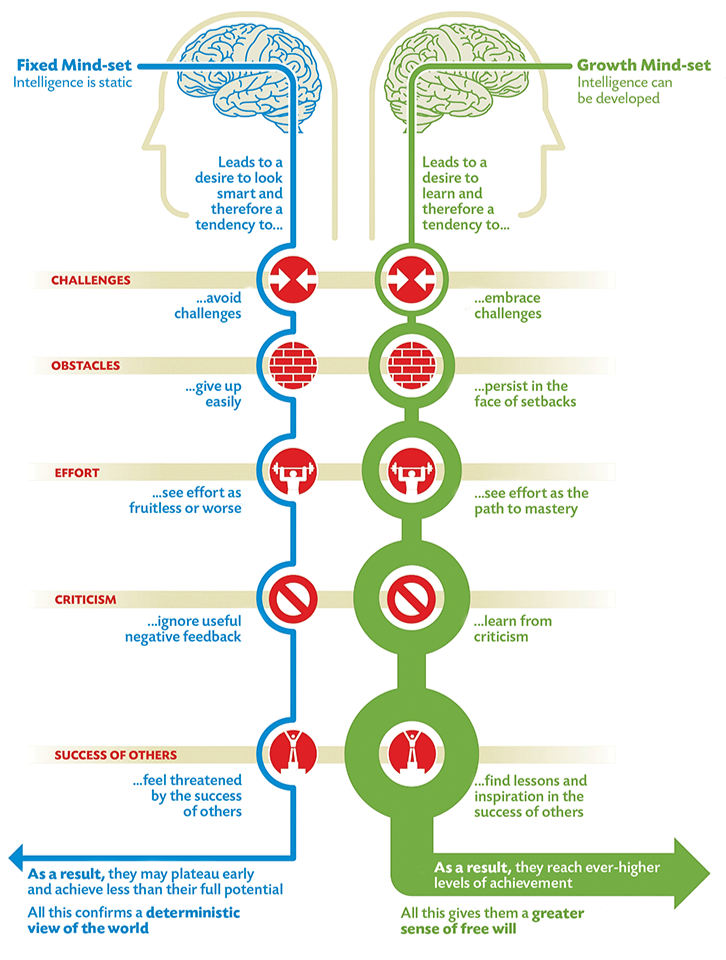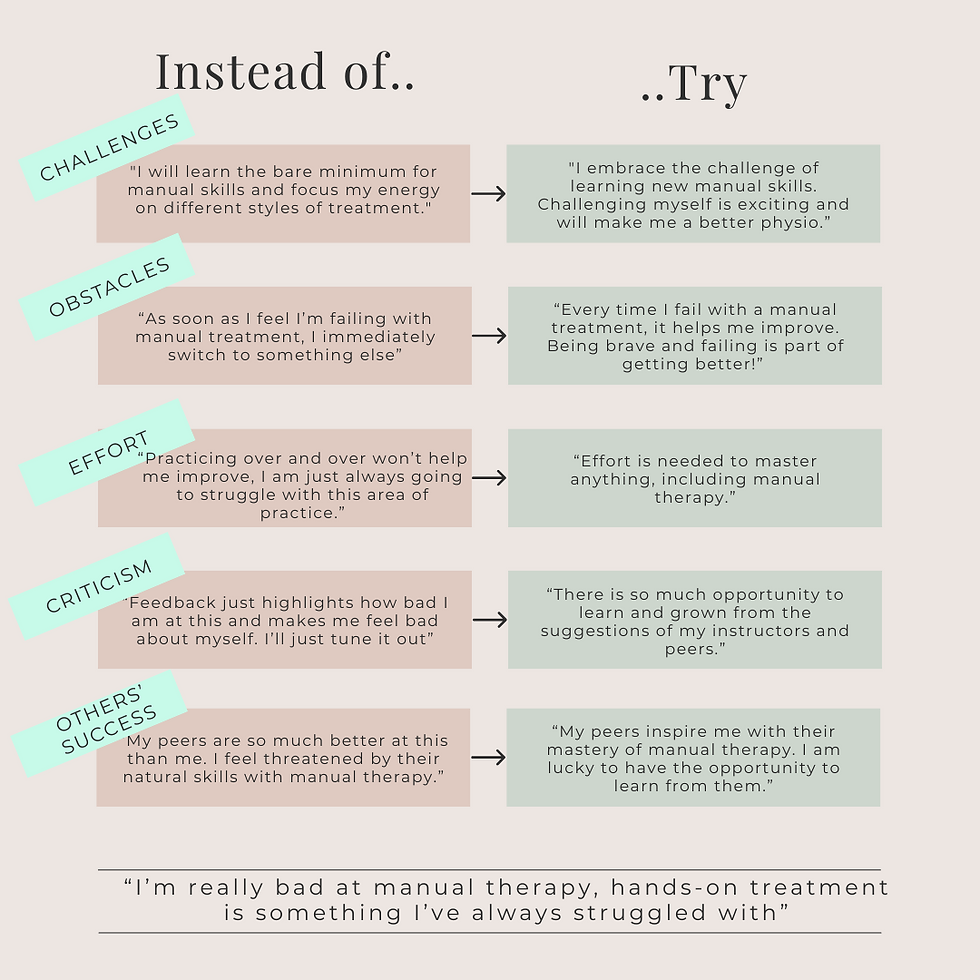Shifting Learning Mindset: How Can I Help?
- carolinetoop0
- Aug 21, 2025
- 3 min read
Updated: Aug 21, 2025
Research has shown that switching from a fixed to a growth mindset is critical in creating strong, resilient learners. This is described by the Psychologist Carol Dweck in a 2013 video cited below. Students that adopt this mindset have been shown to be more likely to challenge themselves, be more resilient, and believe they can achieve more (Stanford Teaching Commons, n.d.).
In my role as an instructor in the Master of Physical Therapy program at the University of British Columbia, I recognize both the challenges of adopting this mindset, and the importance of making this shift.
Much like medical students, physiotherapy students have been conditioned to be results rather than process oriented throughout their educational journey. Students have had to achieve very high grades and check all the boxes in terms of work and volunteer experience to make it through the admissions process. Shifting from this mindset to one that emphasizes the process, risk-taking, and challenges involved in learning will be difficult and necessitate some guidance from instructors.
In addition, physiotherapy is a profession which requires life-long learning, a spirit of curiosity, and a commitment to self-improvement. Research in our field is constantly evolving, and we have a duty to stay up to date in order to provide the best care for our patients.
Given the critical importance of this mindset shift, I have developed a plan to facilitate this process in the setting of physical therapy education.
When the course outline is sent out a week prior to the start date, I will send out a link to a TEDx Talks video from 2012 introducing fixed versus growth mindset (linked in the references section below).
After the first couple of weeks, I will re-introduce the idea and have students complete a worksheet independently to identify one of their physiotherapy-related fixed mindset ideas.
They will then pair up and share their worksheets with each other.
I will repeat this in the first two weeks of each new semester to continue to emphasize this shift in mindset throughout the program.
When I assign this worksheet, I will provide the infographic by Nigel Holmes below as a framework, and then provide an example. I will then provide them with a blank worksheet to fill out.



There are other actions I can take as an instructor to promote this growth and learner’s mindset. I will be transparent and share this plan with students.
Praise process during practical skills teaching.
Have students evaluate themselves and each other. This allows them to find inspiration and learn from others. This also fosters the spirit of collaboration and professional community.
Employ the COVA approach to learning. This is described in a 2018 video by Dwayne Harapniuk (referenced below). This is an approach that gives the learner choice (C), ownership (O), and voice (V) through authentic (A) learning opportunities. This will help students become more self-directed learners
In summary, shifting from a fixed to a growth and learner mindset requires active engagement from the student as well as ongoing support from the instructor. My goal is to help students fully embrace this shift to set the stage for lifelong learning and self-improvement in their careers as physiotherapists.
References:
Dweck, C. (2013, December 3). The power of believing that you can improve [Video]. YouTube. https://www.youtube.com/watch?v=_X0mgOOSpLU
Harapnuik, D. (2018, February 13). COVA approach [Video]. YouTube. https://www.youtube.com/watch?v=-Ft__0LE3qQ
Holmes, N. (n.d.). Fixed vs Growth Mindset. [Infographic]. It’s About Learning: Creating Significant Learning Environments. https://www.harapnuik.org/?p=3627
TEDx Talks. (2012, November 19). The Power of belief – mindset and success | Eduardo Briceno | TEDxManhattanBeach [Video]. YouTube. https://www.youtube.com/watch?v=pN34FNbOKXc
Stanford Teaching Commons. (n.d.). Growth mindset and enhanced learning. Retrieved August 21, 2025, from https://teachingcommons.stanford.edu/teaching-guides/foundations-course-design/learning-activities/growth-mindset-and-enhanced-learning




Comments